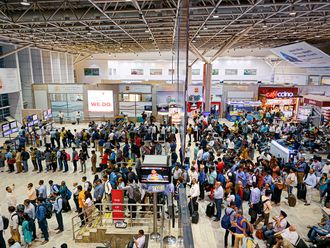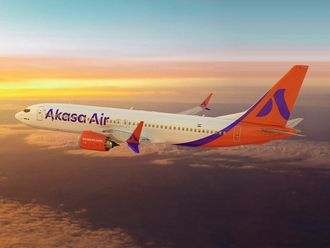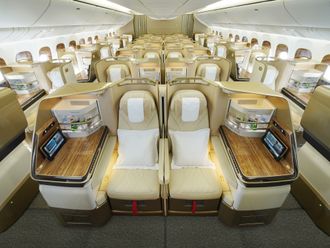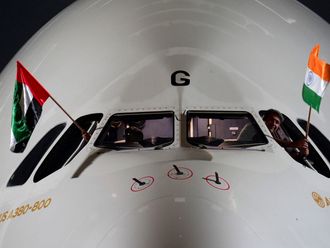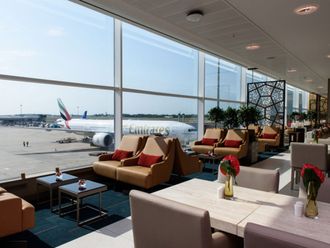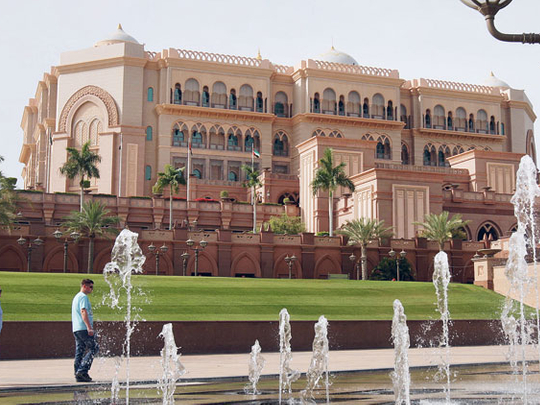
Dubai : After the ‘fall' of the developed world, hotel investors and operators are turning their attention firmly to emerging markets.
"We turned our back on Europe, bar the Balkans, our growth is mainly in the emerging markets of Africa, Russia and the CIS. Here we can get management contracts with good returns and no capital investment is needed," said Kurt Ritter, president and CEO of The Rezidor Hotel Group.
However, in Africa specifically, joint ventures with development funds work rather well.
"We help by putting 20 per cent of the equity or so, it is not that easy to get financing but it is a good model," Ritter said. "It is the survival of the fittest right now if you can grow in difficult times the future is good."
Speakers were discussing the next best spot to develop hotels at the Arabian Hotel Investment Conference (AHIC) in Dubai.
Eric Danziger, President and CEO of the Wyndham Hotel Group, saw the best growth opportunities in Asia, then the Middle East.
Kingdom Holding Investments (KHI) firmly rooted in the region has a Fairmont and Raffles in Dubai and is opening a Four Seasons in Beirut in January and has four more hotels under construction in Manila, Seychelles, Marrakech and Ghana.
"We invested $800 million into these hotels, the Movenpick Ghana will open in January and all properties by mid-2011. We put aside another $20 to $30 million for refurbishing existing hotels," said Sarmad Zok, chief executive officer of KHI.
He tips Asia as being in a box of its own, a bright future for hotel development thanks to its strong population base and economic fundamentals. Zok singles out the Middle East for its unique production of wealth, often reinvested in the region as well as being exported again.
Africa also received top billing from hoteliers and investors. Zok highlighted the China-Africa connection.
"Africa has been neglected for so many years, yet it is such an exciting place to be. China is spending billions of dollars on trade agreements. All commodity-driven pockets with political stability in Africa offer good opportunities and returns."
The InterContinental Hotels Group has long been in Africa and is not losing sights of future opportunities, whether refurbishing existing assets like its InterCon in Lusaka, owned by KHI or brining a new hotel out of the ground in Angola's capital Luanda.
John Bamsey, the group's COO of Middle East and Africa operations, told Gulf News out that for IHG there is no favourite spot in the world. "It is all about the right location teaming up with the right owners, never mind where you are in the world."
For the Golden Tulip Hospitality and Louvre Hotels it is more about the segment, specialising economy.
"It is a profitable concept, which with the right partner can be easily duplicated and run. We have a strong development pipeline fitting the emerging markets. Our focus at present is Brazil, China, India and the Middle East," said the group's president Pierre Frederic Roulot.
An Abu Dhabi company, Action Hotels, picked up on the fact and is investing exclusively in properties in the economy segment in the GCC. A deal has been struck with the likes of Accor and IHG to lend their brands, such as Ibis and Holiday Inn to the hotels. Five hotels are already operating, three under development and seven in the pipeline.
Budget airlines
"The introduction of budget airlines in the region called for affordable hotel accommodation. The economy sector is counter-cyclical we're doing well," said Shaikh Mubarak Abdullah Al Mubarak Al Sabah, chairman of Action Hotels.
"The only issue we have is convincing the regulators in each GCC country to accept European specs, for the hotels like smaller rooms, no bathtubs etc. to decrease costs," he added.
The focus is clearly on emerging markets for new hotels, but that does not imply that operators and investors are ignoring hotels in the west.
"As the emerging markets develop they want to travel more and of course visit the developed markets," Zok said.


